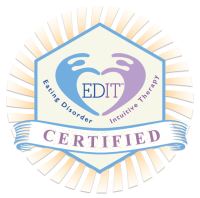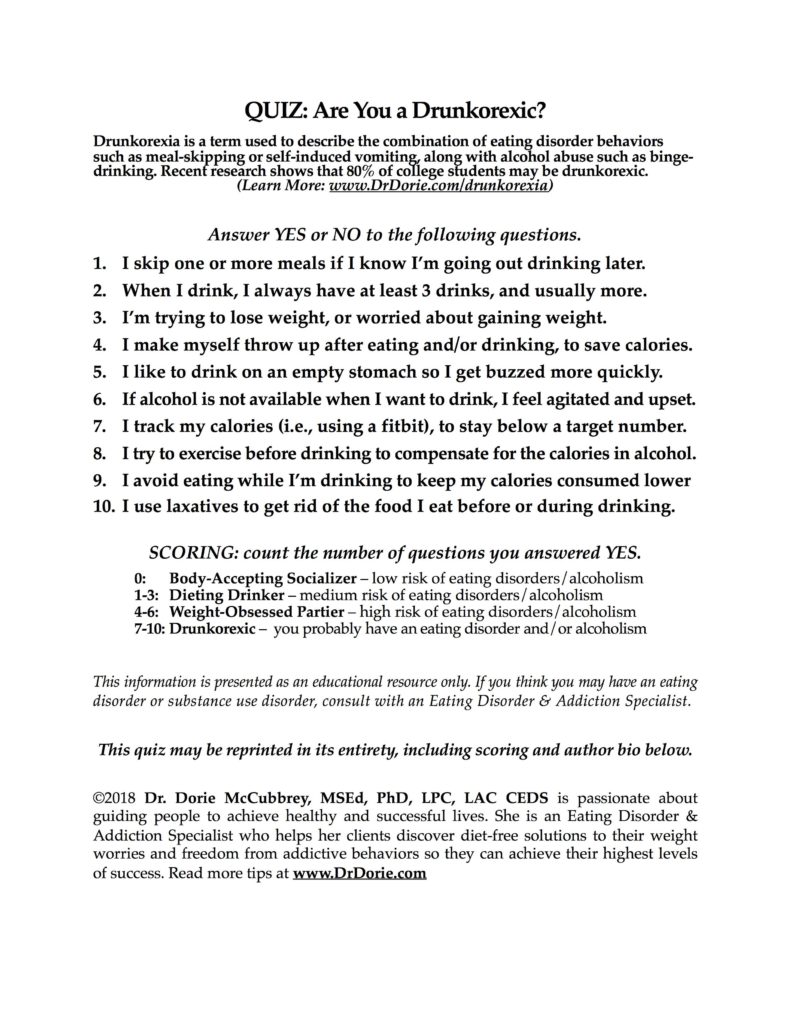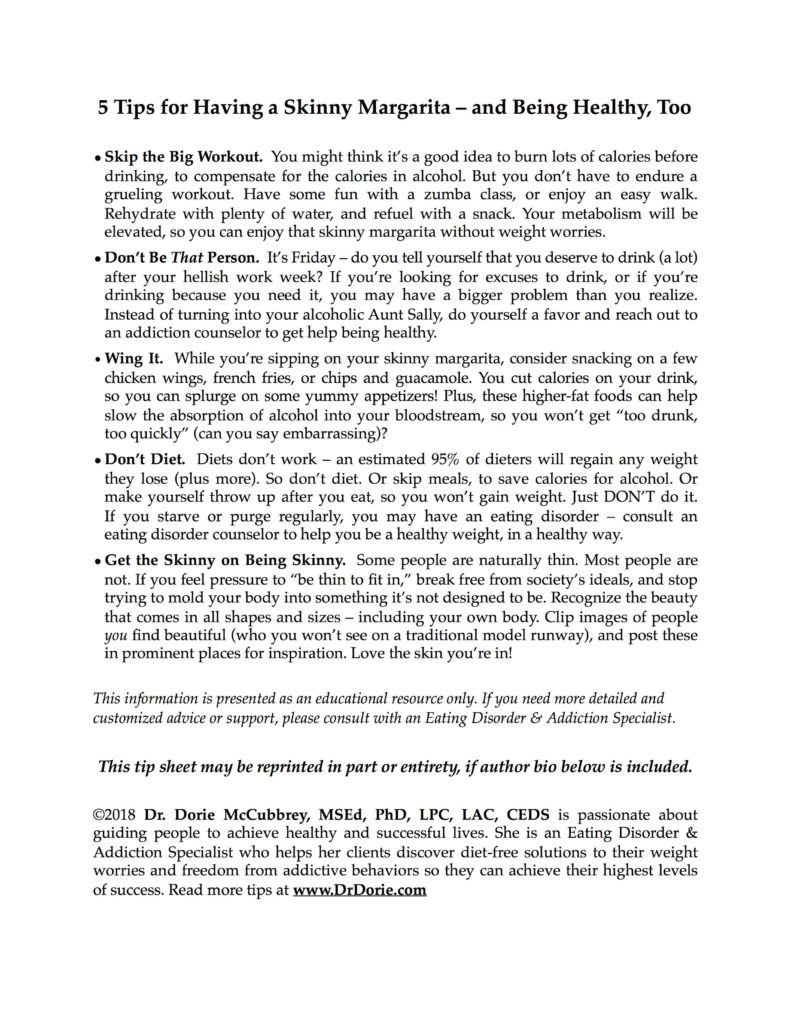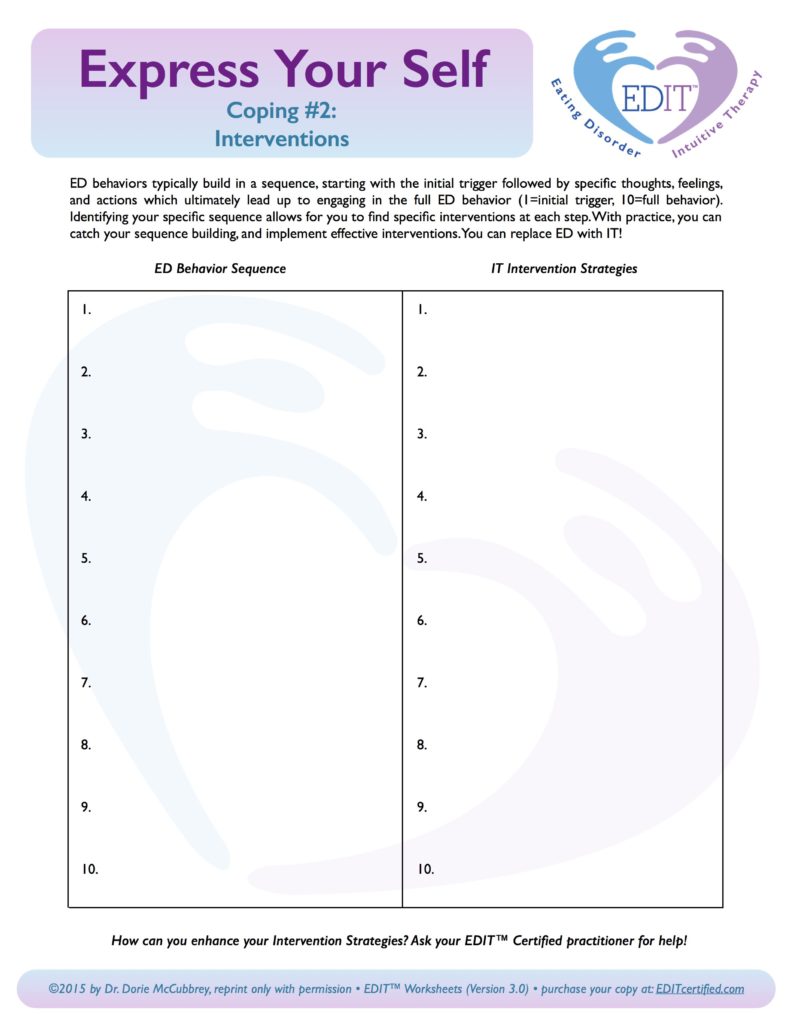Drunkorexia: How to Help Someone You Love
“Drunkorexia” is not a clinical term – it was coined by the media to describe the combination of heavy drinking along with restrictive eating. A study conducted by the University of Houston in 2016 revealed that 80% of students surveyed demonstrated binge drinking in combination with eating disorder behaviors, such as fasting and/or excessive exercise before drinking, or self-induced vomiting during or after drinking. Reported effects were “getting drunker quicker,” or “drinking without weight gain.” The former may be indicative of an Alcohol Use Disorder, while the latter may point to an Eating Disorder such as Anorexia Nervosa or Bulimia Nervosa.
Although other articles about drunkorexia may make light of these issues, or even promote them as a means of “dieting by drinking,” this is in fact a deadly diet. Having either an eating disorder or substance use disorder can be fatal, but a dual diagnosis can increase risk of sudden death due to alcohol poisoning, dehydration and electrolyte imbalance from purging, or other medical complications.
In drunkorexia, it’s as if eating disorders and alcohol use disorders are “feeding on each other” – where the eating disorder may be driving someone to drink as a means to numb appetite, or the alcohol use disorder may trigger fasting or purging to increase the effects of alcohol when tolerance is high. This makes treatment and recovery more complicated – it’s common for individuals to “addiction-switch,” trading the eating disorder for the alcohol use disorder, or vice-versa. Integrated treatment approaches are the key to recovery, where the root cause of both the eating disorders and alcohol use disorders can be addressed.
If you or someone you love is struggling with these issues, here are some recovery tips:
1. Be honest with yourself – write down the type and quantity of alcohol you consume, how many days each week you drink, and also note the disordered eating behaviors you use (meal-skipping, purging, etc), and why you use these behaviors (to prevent weight gain, to intensify the effects of alcohol, or both).
2. Tell someone –open up to a trusted friend that you think you may hav a problem. Saying this out loud is the first step to recovery, and making a change in your eating and drinking behaviors.
3. Reach out for peer support – attend eating disorder support groups (the National Association of Anorexia Nervosa and Associated Disorders sponsors groups around the world), and sobriety support groups (try Alcoholics Anonymous, Women for Sobriety or Life Ring).
4. Consult with a professional – an eating disorder specialist, addiction counselor, or physician can provide an assessment and diagnosis, and can offer treatment strategies for you. While peer support can be helpful to know you “aren’t alone in the struggle,” mental health and medical treatment are the keys to long-term recovery. Eating Disorder Recovery Coaching and Addiction Recovery Coaching can also be helpful to learn recovery skills to practice in your everyday life.
5. Reflect about your values – you might think that you value being an ideal weight or having a fit body, so you justify your drunkorexia behaviors to maintain your low body weight. But what about your value of your health? Or, you might think that you value having friends and fitting in with the crowd, so you justify your drunkorexia behaviors to drink excessively just like everyone else in your peer group. But what about your value of connection with others? What do you really want – to look good – or, to be loving towards yourself and others, and truly loved by others? Food for thought!
Article may be reprinted with the author bio below.
©2018 by Dr. Dorie McCubbrey. Dr. Dorie is a Certified Eating Disorder Specialist and Licensed Addiction Counselor who is passionate about training professionals to effectively guide clients in recovery from eating disorders, through her Eating Disorder Intuitive Therapy (EDIT)™ Certified program. She also meets with clients at her treatment center, Positive Pathways PLLC, located in Evergreen Colorado. Learn more at: https://www.editcertified.com
*****
Interested in a FREE consultation with Dr. Dorie? Dr. Dorie is passionate about her method of Eating Disorder Intuitive Therapy (EDIT)™ to help people overcome eating disorders and addictions. She provides customized counseling for eating disorders and alcohol / drug addiction at her Positive Pathways treatment center in Evergreen, Colorado – and EDIT™ eating disorder training and certification for coaches and clinicians worldwide. CALL 303-494-1975 – EMAIL DR. DORIE – GET CERTIFIED
Take this Quiz to Find Out if You Are Dealing with Drunkorexia:
(click on image to download and print a pdf file)
Use these Tips to Avoid Drunkorexia Issues:
(click on image to download and print a pdf file)
Try this EDIT™ Worksheet for Interventions with Drunkorexia:
(click on image to download and print a pdf file)




